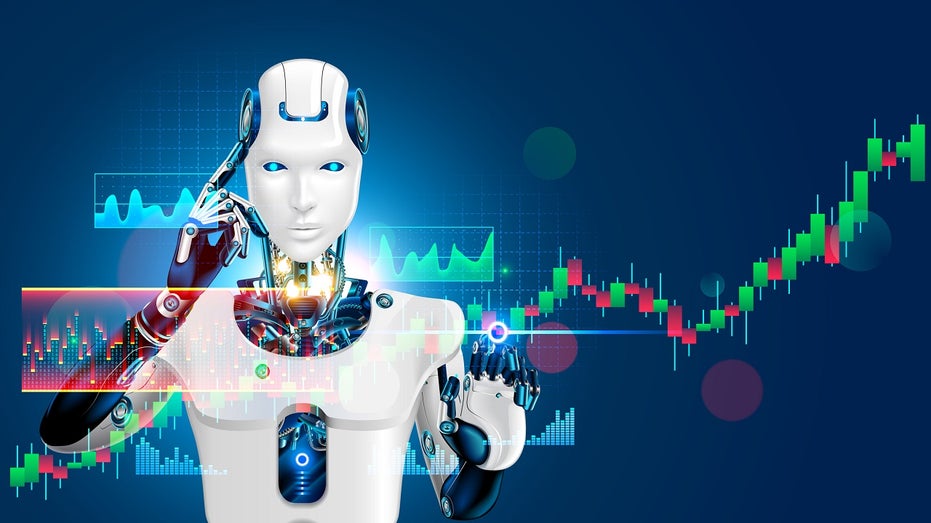
As the global economy grapples with a myriad of challenges, from geopolitical tensions to fluctuating commodity prices, the role of Artificial Intelligence (AI) in transforming commodity trading has surged to the forefront of financial innovation. Unlike the speculative nature of the dot-com bubble, AI offers substantive applications and efficiencies that are reshaping industries such as finance, agriculture, and chemicals. Industry giants like Microsoft (MSFT) and Google (GOOGL) are spearheading this transformation, utilizing AI to optimize operations and boost profitability.
AI's Growing Influence in Commodity Trading
According to a recent blog by ICIS, 72% of companies have already integrated AI into at least one business function. This statistic underscores the escalating influence of AI technologies in enhancing real-time market analysis, refining forecasting models, and strengthening risk management strategies. As companies navigate the intricate economic landscape, those that neglect investing in AI risk being outpaced by their more technologically adept competitors.
Real-Time Market Analysis and Forecasting
AI's ability to process and analyze vast datasets in real-time has revolutionized market analysis. The Energy Information Administration provides insights into how AI-driven analytics are employed to dissect financial data for major energy companies, facilitating a more nuanced understanding of what drives crude oil prices. This level of analysis empowers traders to make informed decisions based on current market conditions and predictive analytics.
Similarly, Citi Wealth offers up-to-date market news and financial planning, leveraging AI to provide investors with insights into US, European, and emerging markets. This integration of AI into financial services highlights its critical role in enabling precise market forecasts and strategic decision-making.
AI in Risk Management and Strategic Decision-Making
One of AI's most significant contributions to commodity trading is its ability to enhance risk management frameworks. AI algorithms can identify patterns and anomalies in trading data, providing early warnings of potential market disruptions. This capability allows traders to mitigate risks proactively and adapt their strategies accordingly.
Additionally, AI's role in strategic decision-making cannot be overstated. By providing detailed analysis and insights, AI enables traders to optimize their portfolios, aligning them with market trends and future projections. This strategic advantage is crucial, especially in volatile markets where swift decision-making can be the difference between profit and loss.
The Role of AI in Agriculture and Chemical Markets
In agriculture, AI is being harnessed to optimize supply chains and improve yield predictions, directly impacting commodity prices. AgWeb reports on how AI technologies are transforming commodity prices and market insights for farmers and producers, ensuring more efficient and profitable operations.
In the chemical industry, ICIS provides data-driven analysis of trends shaping energy markets. AI's application in this sector facilitates real-time market views, unbiased news, and analysis, helping companies remain competitive and preserve margins. As tariffs and geopolitical issues continue to affect global trade, AI's role in navigating these complexities becomes increasingly vital.
AI's Economic Impact and Future Outlook
As AI continues to penetrate deeper into commodity trading, its economic impact is becoming increasingly apparent. Companies that adopt AI technologies report measurable gains in efficiency and profitability. These advancements are not just theoretical; they translate into tangible economic benefits that enhance a company's competitive edge.
Moreover, the technological infrastructure supporting AI, such as cloud computing and machine learning, provides a robust foundation for its continued expansion. This infrastructure ensures that AI's applications will only grow more sophisticated and integral to commodity trading operations.
Conclusion
The rise of Artificial Intelligence in commodity trading is not merely a technological trend but a fundamental shift in how markets operate. With AI's ability to provide real-time market analysis, enhance risk management, and inform strategic decision-making, it is poised to redefine the landscape of commodity trading. As industry leaders such as Microsoft and Google continue to innovate and expand AI applications, the future of commodity trading looks promising, with AI at its core. For investors and traders, embracing AI is no longer optional but essential for sustained success in an increasingly complex global market.

For further reading on AI's impact on the commodities market, visit ICIS for comprehensive market commentary and analysis.